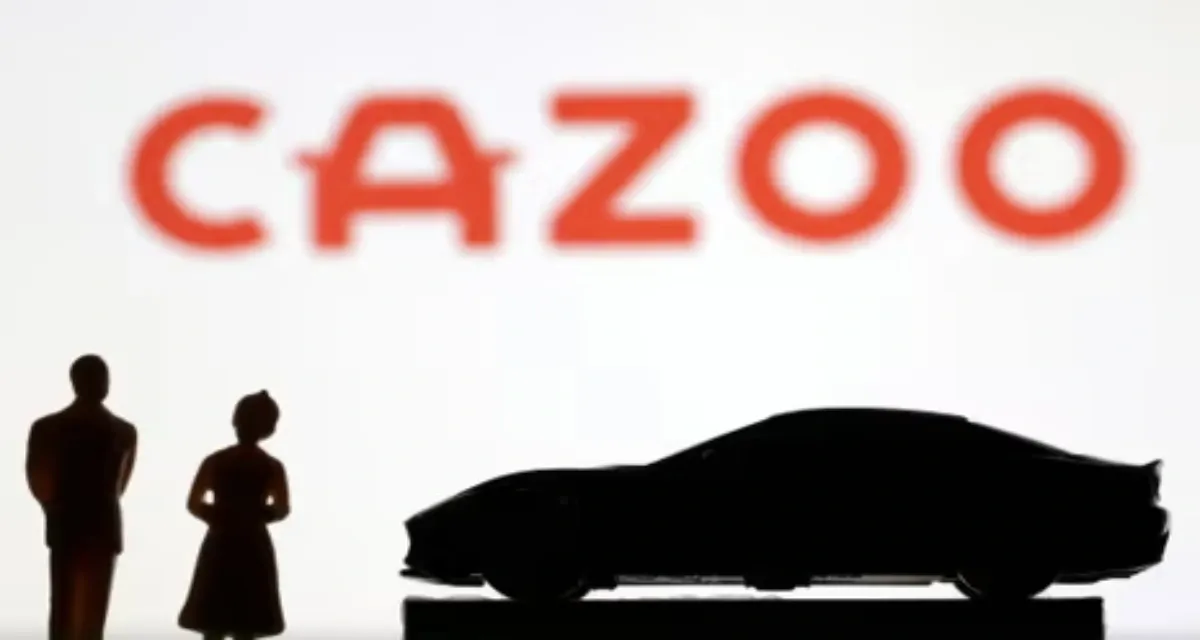
The Future of Used Car Buying is Digital, Asserts iVendi Despite Cazoo's Fall

The Future of Used Car Buying is Digital, Asserts iVendi Despite Cazoo's Fall
Despite the recent collapse of Cazoo, a once-prominent online car retailer, the landscape of the used car market is rapidly shifting towards online sales. This is the central message of a new whitepaper from iVendi, a leading automotive e-commerce company, which highlights how consumer preferences are moving decisively towards digital platforms.
iVendi’s research reveals a significant generational divide in car purchasing habits. Among those aged 30 and under, only 21% plan to buy their next car at a physical dealership. In contrast, the inclination to visit dealerships is slightly higher among those aged 31-44 (23%) and significantly more common among buyers aged 45 and over (35%).
The preference for the "click and collect" method, where customers select a car online and then pick it up from a dealership, is particularly strong among younger buyers. It’s favored by 51% of respondents under 30, 47% of those aged 31-44, and 37% of those over 45. This indicates a clear shift towards digital-first purchasing methods, even among older consumers traditionally considered more conservative in their buying habits.
Darren Sinclair, Chief Commercial Officer at iVendi, emphasizes the rapid adoption of online car buying. "For us, there are two key takeaways from these findings. The first is that there is a clear preference for online over showroom purchases coming down the tracks fairly quickly," he states. "The second is the degree to which online car buying is already the norm in the minds of our respondents."
Even among the over-45 demographic, more than a quarter plan to purchase their next vehicle entirely online, without any physical interaction with a dealership. This suggests that the digital transformation of the used car market is not just a trend among the young but a broader shift across all age groups.
The failure of Cazoo is a setback for the online car retail sector. However, Sinclair cautions against interpreting this as a sign that the market is not ready for digital-only sales. "We know from this research, our dealer customer base, and the market in general that the appetite for digital is increasing, and that trend is likely to continue. What the Cazoo experience instead shows is that it is not always easy to meet that need," he explains.
Cazoo’s downfall, according to Sinclair, does not undermine the potential of online car sales but highlights the challenges in executing a flawless online buying experience. The obstacles often lie in catering to real-world complexities that online journeys must address.
One of the critical insights from iVendi’s research is the necessity of creating online customer journeys that cater to real-world car buyers. “Too many online customer journeys that we see are aimed at theoretical, friction-free consumers rather than real-world car buyers, who often have tricky needs that they want met digitally,” Sinclair notes.
Two specific areas where online sales platforms must improve are handling negative equity and managing part-exchanges. These are common scenarios for many buyers that require careful integration into the digital purchasing process to ensure a smooth and satisfactory experience.
The steady shift towards online car buying is reshaping the automotive retail landscape. Consumers are increasingly comfortable making significant purchases online, a trend accelerated by the COVID-19 pandemic's impact on shopping behaviors.
For the automotive industry, this means adapting to new consumer expectations and developing robust online sales strategies that address potential friction points. Dealers who can successfully blend digital convenience with solutions for complex buyer needs will be well-positioned to thrive in this evolving market.
As iVendi’s research suggests, the future of used car buying is undeniably digital. Despite the challenges highlighted by Cazoo's experience, the direction is clear: embracing and refining online car sales will be crucial for dealerships looking to succeed in the coming years. The demand for digital solutions is not a temporary shift but a permanent transformation of the car buying experience.
Also Read: